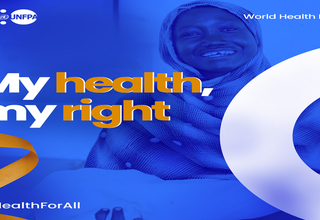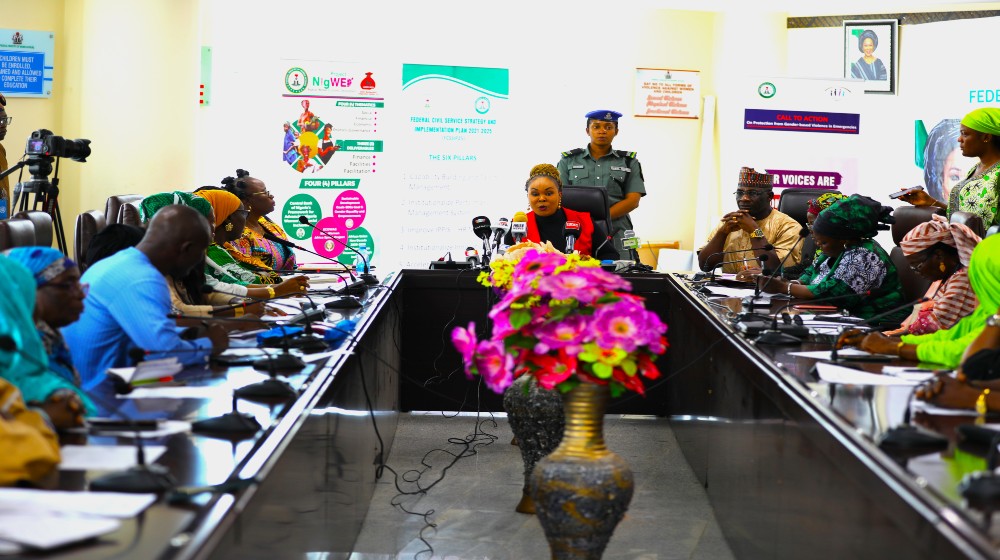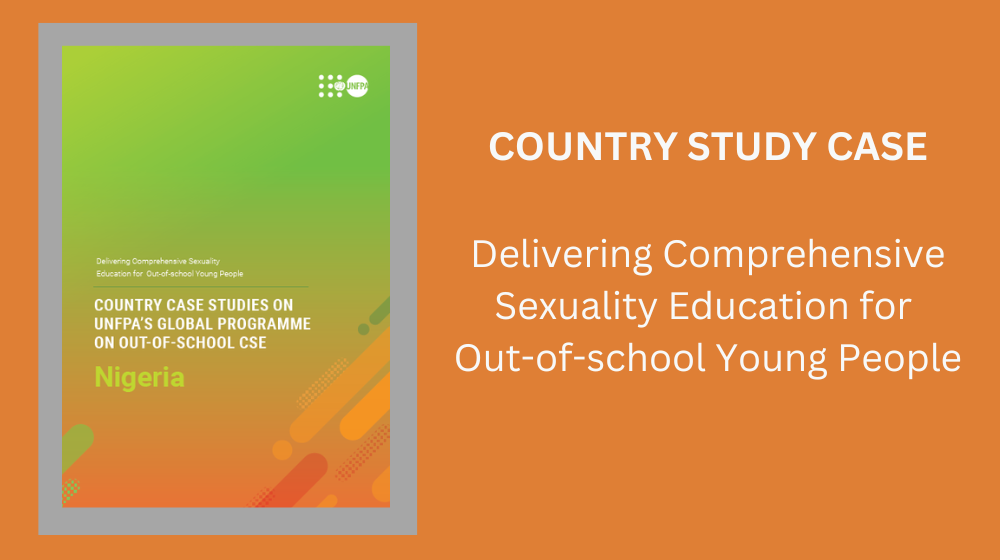Calling for the prioritization of digital rights to privacy, freedom of expression and effective protection and response to online harm, UNFPA Nigeria rolled out the Bodyright campaign, 20 June 2023 in the first episode of a 12-part twitter dialogue series focused on the issue of Technology-facilitated Gender based violence (TFGBV) in Nigeria.
UNFPA is committed to ending violence in all spaces including online. Particularly during the COVID19 lockdowns, with the stark increase in online activities, the sharing of sexual images, threatening messages, and unwanted sexual advances across online social forums were frequently cited.
UNFPA Resident Representative, Ms. Ulla Elisabeth Mueller, was joined by representation from Nigeria’s Federal Ministry of Justice, the United Nations office of Drugs and Crime, the African Youth and Adolescents Network, and UNFPA Headquarters to draw attention to the critical implications this emerging issue will continue to have in Nigeria and globally, if not addressed.
Although non-exhaustive, forms of TFGBV often include non-consensual sharing of intimate images, doxing, online harassment, sextortion, hate speech, radicalization, trafficking, cyberstalking, and surveillance as well as misinformation and disinformation; all disproportionately targeting and affecting young women and girl users.
UNFPA GBV technical advisor, Ms. Alexandra Robinson stressed the gendered nature of TFGBV, as a misogynistic online abuse that extends beyond online platforms and can result in physical harm, including femicide.
She cautioned that “Tech-facilitated violence is a continuum of violence that women and girls in all their diversity experience in every facet of their lives….[Tech-facilitated violence] starts early in the lives of girls and boys…[and] as technology becomes essential in the lives of young people it is increasingly being used by malicious actors to groom young people into systems of misogyny that further entrench harmful social and gender norms and deepen gender inequality.”
The psychological implications and increased risks of offline violence that result from TFGBV cannot be under-estimated. Mental health issues and the effect of perpetrators imposing a sense of omnipresence compound feelings of isolation and humiliation for victims. Ms. Marie-Line Billaudauz works with UNODC’s global programme on Cybercrime and described the offline consequences from digital violence of not only having psychological, emotional, and physical implications, but also oftentimes bearing a negative impact on the social and economic opportunities of the women and girls targeted. Online abuse does instigate offline assaults, especially in contexts where socially contested content situates the victim as “falling short” of socio-cultural norms; this makes Nigeria’s female online users particularly susceptible to offline vilification and physical harm given the country’s pre-existing and pervasive gender inequalities.
UNFPA’s Resident Representative Ms. Ulla Mueller stated that, “The Bodyright campaign is for the young female journalist or aspiring politician whose confidential information or whereabouts are leaked online simply because she decided to share her political views online…[and for] the 16 year old girl who arrived to class one morning only to find her classmates jeering at private photos of her, riddled across their social media timelines…”
Assistant Chief State Counsel and Prosecutor, Ms. Temitayo Lawal working in the Sexual and Gender Based Violence Unit of the FMoJ, highlighted the limits of the existing legal protections to criminalize online harms and the gap in legal instruments and regulations on digital service providers to address online violence especially against women and girls.
“Nigeria’s institutional response to GBV generally has been through the establishment of the SGBV Response Unit, as well as the inter-ministerial Management committee on the Eradication of SGBV, and of course the establishment of the Cybercrime Unit which has been working assiduously.”
Despite penalties of imprisonment for up to 10 years and between N15 to N25 million naira fines for violations and offences related to child pornography, grooming, cyber-stalking and bullying, the applicability of these legal remedies are few and far between, with limiting stipulations stressing explicit evidence that offences put alleged victims in fear of death, violence or physical bodily injury; as well as outstanding uncertainties on what actually constitutes violations of privacy and intent to disparage a victim in one form or another. Ms. Lawal noted a glaring limitation found in Nigeria’s 2015 Cybercrime act, that draws a hard line between the act of gender-based violence and its online facilitation or broadcasting that complicates prosecution, as well as effective law enforcement and legal remedies for victims.
An enabling environment is essential to effectively tackle the emerging and growing issue of TFGBV in Nigeria. Victims often endure long extensive, painful processes to access justice and enforce their digital rights. As. Ms. Mueller emphasized “This campaign is a call to action… to drive real change and claim online protection for every Nigerian girl, woman and young person and take tech-facilitated violence as seriously as copyright infringement is taken.”
The Bodyright campaign is a first step to effectively address prevention and response to online violence in Nigeria. Deploying the ⓑ symbol as a new “copyright” mark to protect the digital rights of users in Nigeria and globally, UNFPA is rallying a variety of stakeholders to promote the safe and ethical use of technology and develop tangible actions to end TFGBV.
Get involved! Bodyright your images, sign the global petition, tag @UNFPANigeria and use the #BodyrightNG when posting on social media. DM @unfpanigeria on ig or twitter if you, your local celebrity or influencer are planning or hosting a Bodyright awareness-raising event or activity.




